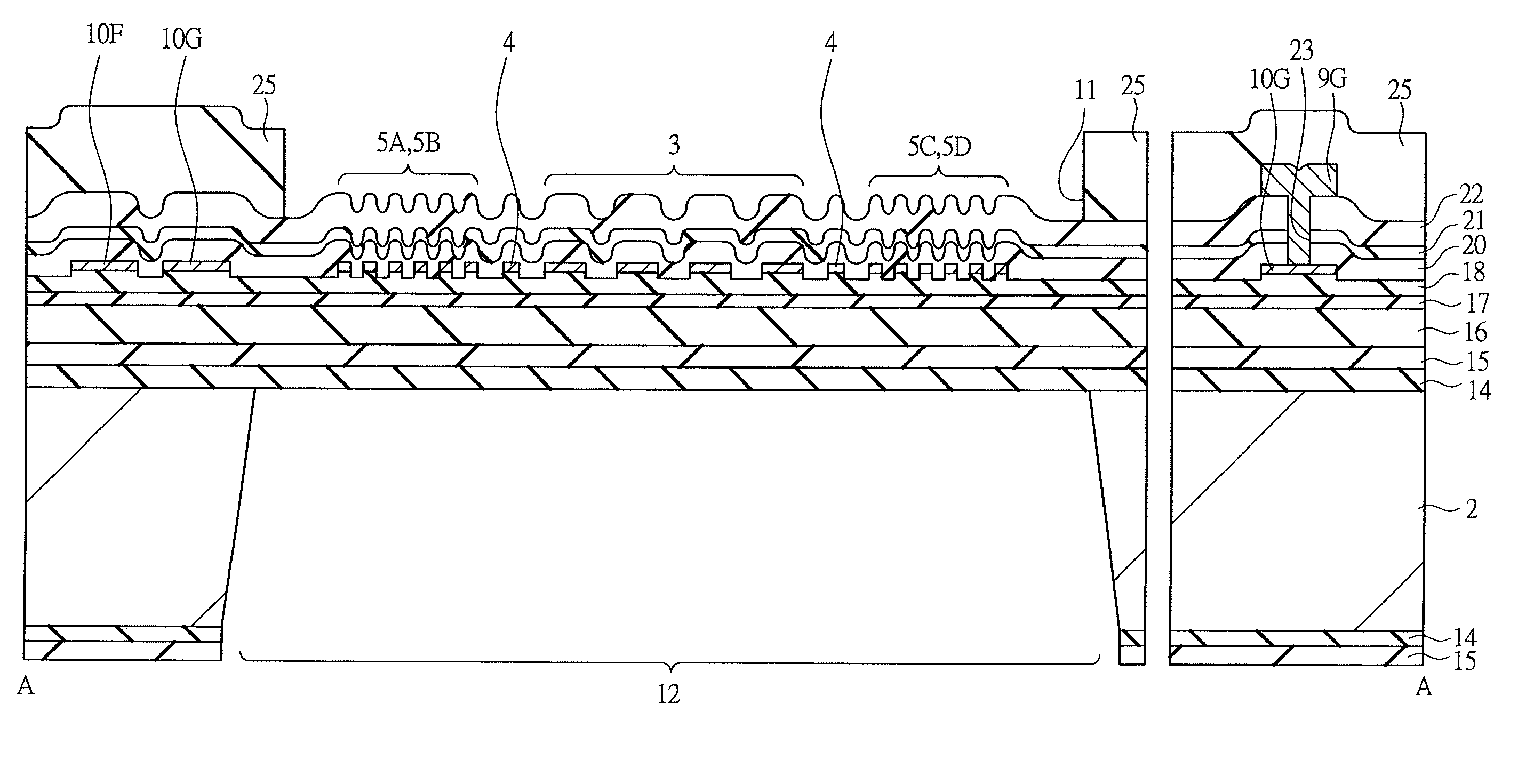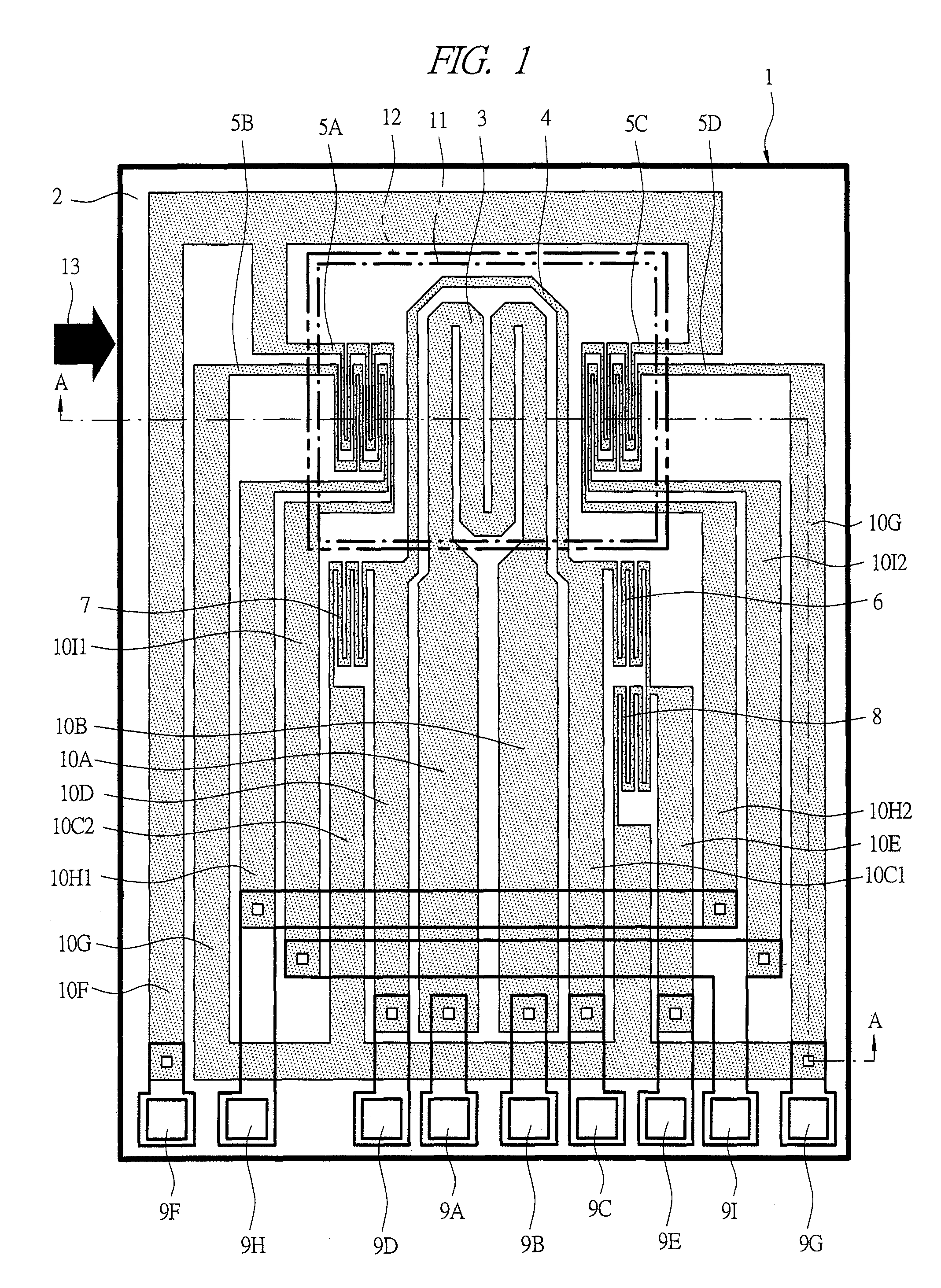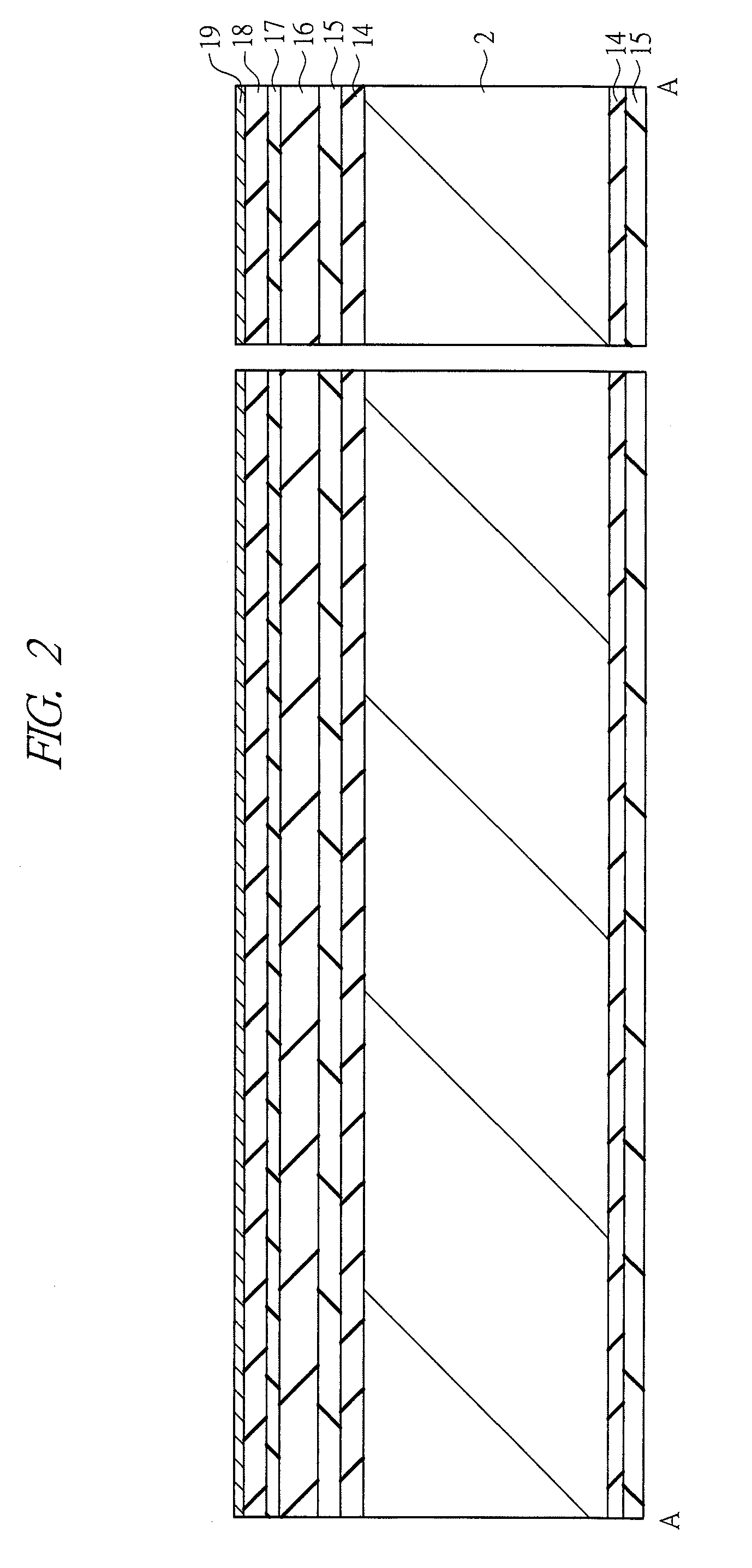Thermal fluid flow sensor having stacked insulating films above and below heater and temperature-measuring resistive elements
a technology of thermal fluid flow sensor and insulating film, which is applied in the direction of ohmic resistance heating, liquid/fluent solid measurement, instruments, etc., can solve the problem of the insulating film is designed to be a flat film, and the wiring shape is not considered in the above-mentioned techniques, etc. problem, to achieve the effect of eliminating the deflection of the diaphragm, reducing unevenness and large variation
- Summary
- Abstract
- Description
- Claims
- Application Information
AI Technical Summary
Benefits of technology
Problems solved by technology
Method used
Image
Examples
first embodiment
[0041]A plan view of main parts of an example of a thermal fluid flow sensor according to a first embodiment is illustrated in FIG. 1.
[0042]A measuring element 1 which is the thermal fluid flow sensor of the first embodiment is composed of a semiconductor substrate 2, a heater resistive element 3, a temperature-measuring resistive element for heater resistive element 4, a temperature-measuring resistive element, an air-temperature-measuring resistive element 6, heater-temperature-controlling resistive elements 7 and 8, terminal electrodes 9A to 9I, and draw-out wirings 10A, 10B, 10C1, 10C2, 10D, 10E, 10F, 10G, 10H1, 10H2, 10I1, and 10I2, etc.
[0043]The semiconductor substrate 2 is formed of, for example, single crystal silicon (Si).
[0044]The heater resistive element 3 is formed on the semiconductor substrate 2 interposing an insulating film, and has a wiring width of, for example, about 1 to 150 μm.
[0045]The temperature-measuring resistive element for heater resistive element 4 is us...
second embodiment
[0097]In a second embodiment, prevention of warpage of a wafer due to remnant stress which a film deposited on the wafer (the semiconductor substrate 2) has is considered.
[0098]FIG. 16 illustrates an example of a thermal fluid flow sensor according to the second embodiment, illustrating a cross-sectional view of main parts taken along the line A-A in FIG. 1 of the first embodiment.
[0099]Thicknesses of respective films configuring the thermal fluid flow sensor of the second embodiment are the same with those of the first embodiment except for the fourth insulating film 17 (a silicon nitride film) having a thickness of about 200 nm (it has been about 140 nm in the first embodiment).
[0100]Next, a manufacturing process of the thermal fluid flow sensor according to the second embodiment will be described. Note that the manufacturing process of the thermal fluid flow sensor of the second embodiment is the same with that of the first embodiment until the step of depositing the fourth insul...
PUM
| Property | Measurement | Unit |
|---|---|---|
| tensile stress | aaaaa | aaaaa |
| compressive stress | aaaaa | aaaaa |
| thickness | aaaaa | aaaaa |
Abstract
Description
Claims
Application Information
 Login to View More
Login to View More - R&D
- Intellectual Property
- Life Sciences
- Materials
- Tech Scout
- Unparalleled Data Quality
- Higher Quality Content
- 60% Fewer Hallucinations
Browse by: Latest US Patents, China's latest patents, Technical Efficacy Thesaurus, Application Domain, Technology Topic, Popular Technical Reports.
© 2025 PatSnap. All rights reserved.Legal|Privacy policy|Modern Slavery Act Transparency Statement|Sitemap|About US| Contact US: help@patsnap.com



